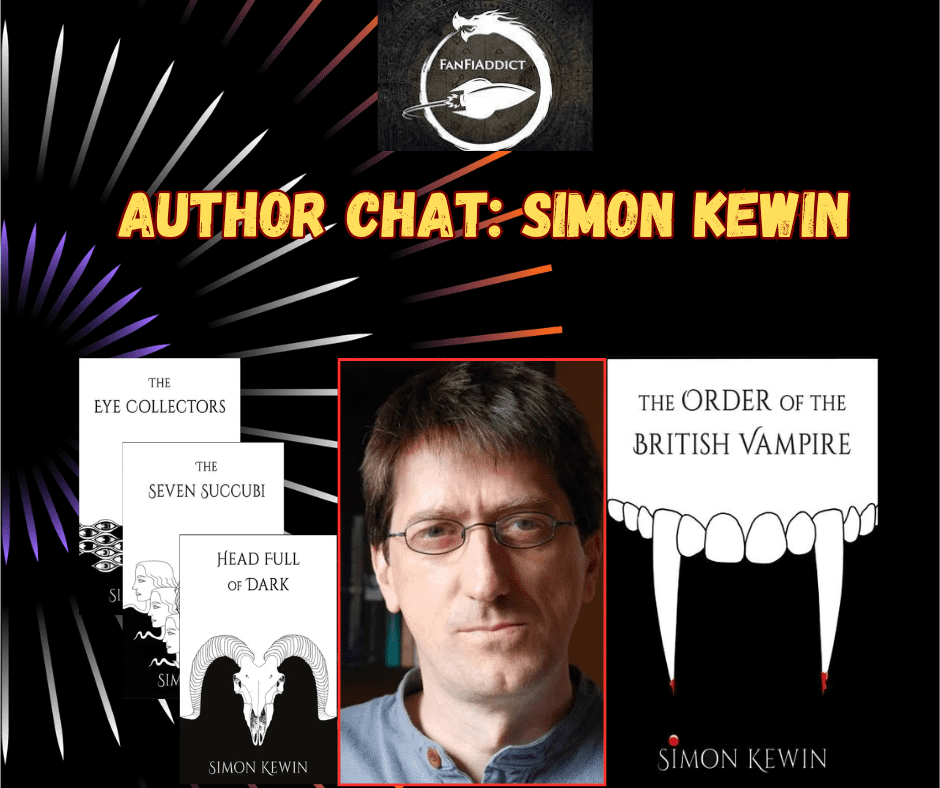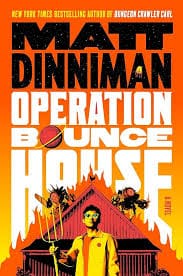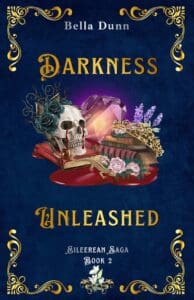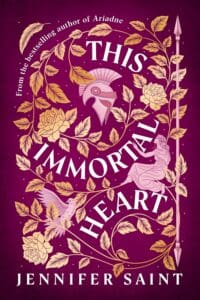
Simon is an award-winning fantasy and sci/fi writer with over a hundred published short stories to his name (with appearances in Analog, Nature and many others). He’s the author of the Cloven Land fantasy trilogy, cyberpunk sci/fi thriller The Genehunter and the “steampunk Gormenghast” Engn Saga. He’s signed to the mighty Elsewhen Press for the publication of his Office of the Witchfinder General books.
His novel Dead Star was an SPSFC award semi-finalist and his short story #buttonsinweirdplaces was shortlisted for a Utopia award. His novella The Clockwork King won the Tales by Moonlight Editor’s Prize.
Hi Simon, thanks for chatting. Your new book, the resplendently and intriguingly titled The Order of the British Vampire, has just been published by indie speculative fiction press Elsewhen. It’s the fourth book in the series ‘His Majesty’s Office of the Witchfinder General’, which I can confirm is enormously good fun and a compelling read, albeit difficult to fit on a badge I imagine. Can you run readers briefly through the general concept of the series as well as what we can expect from this new entry?
Hi! Thanks for having me. Yes, I was delighted when I came up with the title for this book. I’m not opposed to a good pun.
I’ve always loved fantasy books that depict horrors and wonders seeping into the real world. Then I heard the (chilling) phrase “The Witchfinder General” somewhere and, at the same time, I was reading a fascinating (honestly) article on defunct positions in the British cabinet – specifically, the “Postmaster General”, a position that, incredibly, existed from the early 16th century up until 1969. And then I thought it might be fun to combine those two: have a Witchfinder General as an official British cabinet position, as well as this whole government department around them so they could work to protect the realm from supernatural threats.
Her/His Majesty’s Office of the Witchfinder General was born: a shadowy arm of the British government that these days is run quietly from No. 13 Downing Street (there’s a secret tunnel to No. 10 so the PM can talk to the Witchfinder General). The first book in the series, The Eye Collectors, was published in 2020, followed by The Seven Succubi (2022), Head Full Of Dark (2023) and now the fourth book: The Order of the British Vampire. In this one, Danesh battles a figure who has quietly been his nemesis throughout all four books.
What inspired you to use as the modern day “magic/monster hunting agency” role the very real (and notorious) seventeenth-century post of the witchfinder general Matthew Hopkins?
I wanted to deliberately blur the lines between fantasy and reality in the books. Using real characters and places is one obvious way to do that. Using Hopkins, specifically, allowed me to dramatize the conflict that my hero, Danesh, feels. He works for the Office of the Witchfinder General, but has growing doubts about the organization, and especially its historical roots with monsters like Hopkins.
One of the fascinating themes of your series is that the office our protagonist works for (unsurprisingly given its real life history) is not necessarily always the good guys, and that they have a bit of an authoritarian anti-magic, anti-liberty streak. There’s also a parallel with the real British history of fascism, with a racist sect of wizards who fight foreign-born/foreign heritage wizards or those practicing what they consider foreign magic. By examining these real-life concepts within your world of magic, what are you trying to say and explore?
To me, that’s an interesting theme that’s there if you want to look for it. I guess I was satirizing the whole nativist, English exceptionalist mind-set that we see more and more of. The antagonist of the fourth book, for example, makes conscious and deliberate use of such ideas, while being privately fully aware that they are based on lies.
Danesh is right at the heart of these matters: he’s a British Asian man born in England but living and working in Wales. He’s working for an organization that is implacably opposed to magic use – yet he has, well, certain aptitudes that trouble him. These conflicts all hopefully make for good drama.
The sense of belonging but not-quite-fully-belonging that Danesh sometimes feels is familiar to me: I was born outside the UK, on the Isle of Man, and while that’s only a short journey, there have been times when I’ve found living in England really quite baffling.
This new book focuses on vampires. What’s your lore take on vampires here, and why did you decide for them to be your new antagonist?
I used some of the standard vampire tropes – which are useful, because readers will be familiar with them – but I also changed a few details in what I hoped were interesting ways. For example, you can’t just kill my vampires with any old bit of pointy wood. That always seemed like a significant vulnerability! My vampires are aristocrats; they’re basically the real power behind the British state, an idea that I found amusing in a grimly satirical way. Also, my vampires can tolerate sun, but they like the UK because the weather is so gloomy a lot of the time…
Without giving too much of the story away, there’s a long story-arc across the first four books concerning one particular vampire, who has been Danesh’s arch-enemy all along. That battle comes to a head in this book. In previous books he’s battled sorcerers, demons and witches, but the vampire threat has always been there in the background.
This is a series set in Wales—your home, perhaps?—and you clearly take a great deal of joy (I can almost hear the wry chuckles from the page) from appropriating various Welsh landmarks for sites of magic. What is it about Wales that makes it a perfect setting for such a series?
Wry chuckles are what I aspire to. I actually live just over the border, in Herefordshire – although the dividing line is often fuzzy, and paths and roads can pass in and out of the two countries without you even noticing. Some of the action does spill across into England – and indeed, visits several other parts of the British Isles in some books. Cardiff and its surrounding areas are very familiar, places I’ve worked in and visited many times. As I say, I’m Manx, not English, which I figured allowed me to appropriate Wales in what I hope is an affectionate way.
In these books, you have a gloriously sinister concept called Oblivion, which is a separate universe where villains (or at least anyone the Witchfinder’s Office considers a villain) are sentenced to and placed into an endless limbo-like sleep, rather than killing them outright. Obviously my first thought is to ask you who you would sentence to Oblivion from the real world if you could.
My vision of Oblivion came, I think, from seeing this Gustave Doré illustration from Dante’s Inferno many, many years ago. As a boy, it horrified and fascinated me.

As to who I would put in there: well, obviously, there are certain world leaders that I’d banish there straight away. You can probably figure out who they are. One or two tech oligarchs would go in right next to them. Then there are the people who try to stir up trouble and division with their culture war bullshit. Fortunately, Oblivion is limitless in extent!
This is now the fourth book you’ve published with Elsewhen Press. What has been your experience of working with an indie press, and how does it compare to your self-publishing experiences?
I’ve worked with three indie presses over the years – and Elsewhen has been by far the standout. I’ve obviously loved working with them: they’ve really bought in to the idea of my books, and believed in them, and we’ve had a lot of fun producing the novels. For instance, there’s a suppressed book of magical creatures mentioned in the books (Dr Miriam Seacastle’s Red Dragon, a Bestiary of Modern Britain), which Elsewhen actually produced, illustrated and published – or (depending on which version of reality you prefer), which they tracked down and bravely republished despite the protests of the Office.
There are obviously pros and cons with working with an indie press vs. self-publishing. My self-published books give me more freedom to do things like take part in promotions or give away free copies if I want to. On the other hand, it’s lovely having a publisher to worry about editing and covers and formatting and the like. I’ve also felt very much like I’m part of a team or even a family at Elsewhen – which I value very much.
This is not your only series; you’ve also published a fantasy trilogy and a cyberpunk/sci-fi thriller, among others, and clearly have built a lengthy and consistent career, including various award listings and prizes. What advice do you have for other authors who wish to maintain longevity in an industry that is often hard to stick around in for a long time?
I’d say, do it if you love doing it, don’t if you don’t. I can’t think of any other reason to write other than the want/need to create. Don’t do it to make a fortune or for the adoration of millions of fervent fans: certainly, neither of those things have happened to me (yet). I find I quite often decide to give up and do something else (which would be fine) – but always, this new idea for a really cool book starts whispering away in the back of my mind, and off I go.
When you’re not writing, what sinister and devious activities does Simon Kewin get up to? Innocent ones grudgingly accepted too.
This is going to be disappointing: reading, theatre, cinema, board gaming – the usual stuff. I do quite a lot of running and walking, too. Shockingly, I even dabble in gardening. I do attend the odd death metal and punk gig, but that’s about as close to “sinister” as I get.
What lies in the future for Simon Kewin? More books in the ‘His Majesty’s Office of the Witchfinder General’ series? Other new series?
Well. Good question. I do plan to write a fifth book in the Office series, tying up a couple of other story arcs. Then I could (without giving anything away), lead into more real-world magic noir thrillers, based around a different organisation but still with Danesh as my hero. I’ve also just had a novelette accepted by Occult Detective magazine based around the Office of the Witchfinder General as it was in Victorian times – and a full novel there would be fun to write.
That all said – I’m currently working on a sci/fi trilogy set in the 23rd century and concerning humanity’s tentative push out into the stars. They’re also detective thrillers of a sort, but fundamentally they’re about humanity losing and regaining a sense of hope and optimism – something that resonates with us here in the 21st century to my mind. The first of those is written and I’ve signed a contract for it to be published through Elsewhen.
And then, I do have detailed plans for a series of five interconnected high fantasy novels which I’d really love to write one day…
Thanks Simon! For links to buy all the books in this series and Simon’s other books, check out his website here




Leave a Reply